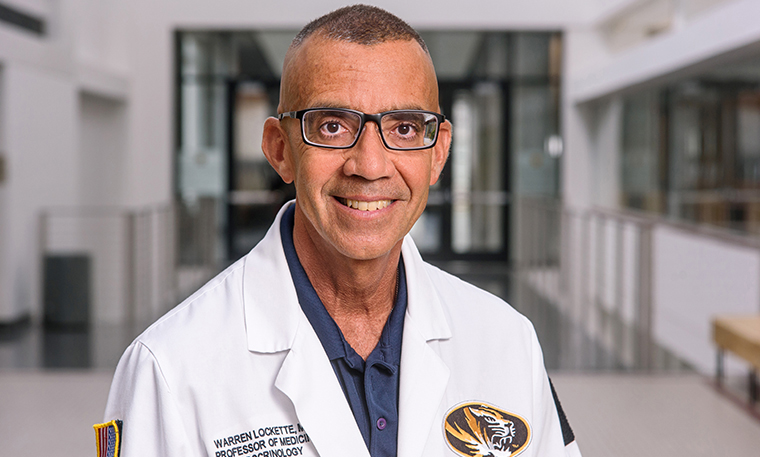
Traumatic brain injuries (TBI) contribute to nearly 30 percent of all injury-related deaths in the United States, according to the Centers for Disease Control and Prevention. While the effects of TBI on behavioral and cognitive function are widely studied, the effects such injuries may have on the heart have yet to be determined.
A research team led by Warren Lockette, MD, professor of medicine, pharmacology and physiology and Thomas W. Burns Distinguished Professor in Diabetes at the University of Missouri School of Medicine, has been awarded a four-year, nearly $4 million grant from the U.S. Department of Defense to study the cardiovascular consequences of TBI.
“We know that head injuries have been shown to activate our fight-or-flight stress response,” Lockette said. “We also know that chronic stress increases our likelihood of developing cardiovascular disease. What we don’t yet know is how stress caused by traumatic brain injuries affects our heart health. It’s an ambitious question that our research team hopes to answer through this study. We believe this may yield major implications for our dedicated military service members, athletes and the general public who experience TBI.”
Lockette is joined by three co-investigators in the multisite study:
- Daniel Perl, MD, professor of pathology at the Uniformed Services University of the Health Sciences in Bethesda, Maryland. Perl is among the world’s foremost authorities on the different effects impact or blast injuries have on the brain
- Paul Fadel, PhD, professor of kinesiology and associate dean for research and director of clinical translational science at the College of Nursing and Health Innovation at the University of Texas at Arlington. Fadel is an international expert on cardiovascular baroreceptor function and sympathetic nerve activity in humans in health and disease.
- Kalev Freeman, MD, PhD, assistant professor of surgery and pharmacology at the Larner College of Medicine at the University of Vermont in Burlington. Freeman is a leading cerebrovascular research scientist who studies mechanisms by which nutrient blood flow is altered in brain injury.
The researchers will study athletes, such as hockey players, who have experienced a TBI who are otherwise healthy and athletes who have not had a TBI. The researchers will study the autonomic nervous system — which controls bodily functions such as breathing and heart beat — and how physical exertion and stress affect blood pressure and heart rate.
The research complements ongoing studies Lockette is conducting to help improve the lives of veterans and service members. His lab is studying whether or not the same cellular mechanisms by which exercise improves heart health also are responsible for the healthful benefit of exercise on depression and other behavioral health concerns related to post-traumatic stress disorder.
“I feel strongly that as an academic health system, when we provide health care, we should also be thinking about patients who we might not see on a day-to-day basis because they are serving our country away from home and overseas,” said Lockette, who previously served as a senior adviser to the Commander of the Naval Special Warfare community. “I want to support our military service members, and as a clinician-researcher, this is my way to help them now and in the future.”





